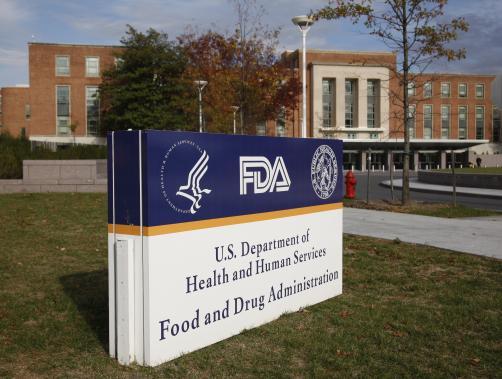FDA and doctors warn against extending COVID-19 vaccine dose gap

Tinkering with the dosing schedule of COVID-19 vaccines runs a “significant risk” to public health, the FDA has warned in a statement after the UK announced plans to prioritise the first doses of two approved shots.
The regulator made its comments after the UK announced a policy of stretching the gap between doses of the vaccine to up to 12 weeks to ensure maximum coverage of vulnerable groups.
The UK’s Joint Committee for Vaccines and Immunisation (JCVI) has recommended prioritising the first shot of the vaccines from Pfizer/BioNTech and AstraZeneca – but said that the follow-up booster dose can be delayed by up to 12 weeks.
According to the UK’s drug regulator the Pfizer/BioNTech vaccine doses should be taken at least 21 days apart while AZ vaccine’s booster doses should be given between four and 12 weeks apart.
But the FDA has issued a statement warning against such a strategy and reminded the public about the importance of receiving their second dose on time.
In the US, the Pfizer and BioNTech vaccine and a rival from Moderna is approved with a four-week gap between doses, but the AstraZeneca vaccine is not.
The FDA said it had been monitoring discussions and news reports about the policy and concluded that extending the time between doses, changing the dose and mixing and matching vaccines are “reasonable questions” to consider and evaluate.
But in a strongly-worded statement it said that changing the vaccine schedule without evidence could “undermine the historic vaccination efforts to protect the population from COVID-19.”
There are concerns elsewhere that the extended dosing schedule could also lead to resistant forms of the virus taking hold at a time when there is a new and highly infectious variant spreading through the UK.
https://twitter.com/PatelOncology/status/1345421276970590208
In the US, doctors pointed out that the slow roll-out of the vaccines is due to logistical challenges rather than supply and urged authorities to focus on this rather than delaying the dosing schedule.
In the meantime, the UK government has pushed ahead with plans to vaccinate everyone in the four highest-priority groups by mid-February.
This will require the NHS to start delivering at least two million shots a week from next week.
AZ’s chief executive Pascal Soriot said it would be possible to manufacture the required vaccines, although it remains to be seen whether output will be increased in time to hit the target.
The government said it already has a batch of 530,000 doses and a further 450,000 are reportedly due to be available by the end of week according to Oxford University’s regius professor of medicine Sir John Bell.
Several million more doses of the vaccine are understood to have been manufactured but have not yet been bottled in vials.













